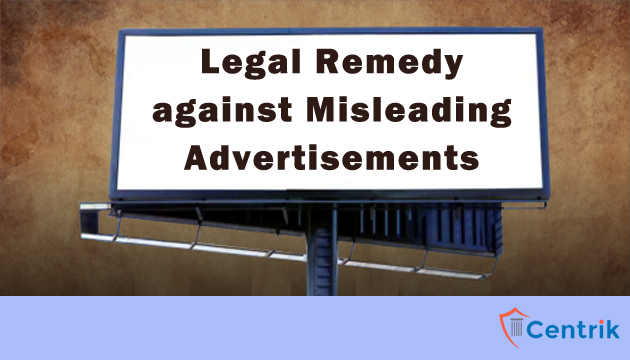
Status as on- 18/07/2020
The need for cure becomes imperative whenever humanity is faced with a life-threatening pandemic such as corona virus. However, what follows it is a bigger challenge in the form of misleading advertisements and fake cure. Misleading advertisement is an ethical problem but becomes hazardous when it purveys products as a cure to the pandemic.
Introduction
One of the challenges that society encounters, whenever there is an urgent need for a cure is a fake cure under the garb of a misleading advertisement. The need to revisit the longstanding principles of contractual liability in contrast to the contemporary legal remedy arises whenever we are faced with such situations. It is important that the Indian Consumer becomes aware of the rights available to them in case of fake cure or placebo.
Principle of Contractual Liability
The judgment of the Court of Appeal in Carlill v. Carbolic Smoke Ball Company (1892) lays down principles of contractuality in circumstances when a fake cure is made available. In the Smoke Ball case the pharmaceutical company floated a product called the ‘smoke ball’ claiming the user of smoke ball would never contract influenza which was a pandemic and was claiming millions of lives. Mrs. Carlil purchased one smoke ball and used it as prescribed. However, later she was diagnosed with influenza. She sued the company and the matter went on to the Court of Appeal. The Court of Appeal held that the company is liable to pay Mrs. Carlil as the advertisement was a unilateral offer to everyone who buys the smoke ball and uses it as prescribed. Thus, the performance of condition in the offer will constitute the acceptance and consideration of promise.
Laws regulating misleading advertisements in India
There are two categories of statute that can safeguard the rights of the consumer against such misleading advertisements claiming a product to be a cure.
- The first one being the regulatory laws such as The Drugs and Magic Remedies (Objectionable Advertisements) Act, 1954, basically prohibits four kinds of advertisements pertaining to drugs and magical cures.
- Section 4 of the Act prohibits advertisements relating to a drug if the advertisement contains any matter which directly or indirectly gives a false impression regarding the true character of the drug or makes a false claim about the drug or is otherwise false or misleading.
- Section 5 of the Act prohibits advertisements of magic remedies for treatment of certain diseases and disorders. Violation of the law attracts imprisonment for six months or fine or both, for first conviction and for subsequent conviction, imprisonment for a year or fine or both
- The second one being the laws that provide legal remedy or the right to seek redress against such advertisements, including compensation for any loss or injury caused because of such advertisements. The Consumer Protection Act, 1986 provides for redress against unfair trade practices and a false or misleading advertisement becomes an unfair trade practice under the provisions of the law. Section 2 (1) (r) of the Consumer Protection Act gives a comprehensive definition of unfair trade practice and Section 14 deals with the directions that the court can give to deal with such practices and this includes directions to the advertiser to discontinue such advertisements and not to repeat it
Conclusion
Therefore, in the current scenario if any pharmaceutical company comes up with a cure for the Corona virus. It is quite certain the company will easily have an impact over the consumer market and will end up making profits. However before floating their products in the market they need to make sure that they stand on their claims because if not the Indian consumer will have recourse available before the consumer courts. The consumer courts on several occasions have safeguarded the interest of the consumer and imposed heavy cost over the manufacturers.




 join For Updates
join For Updates